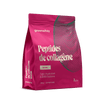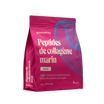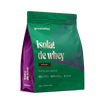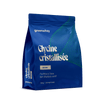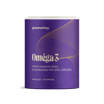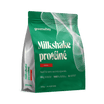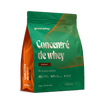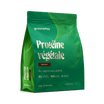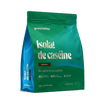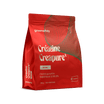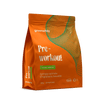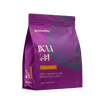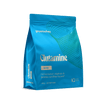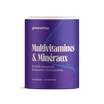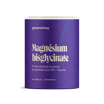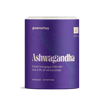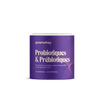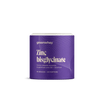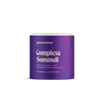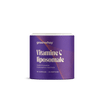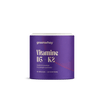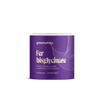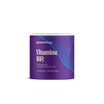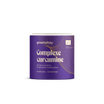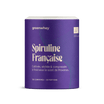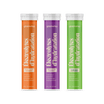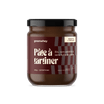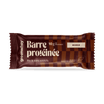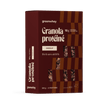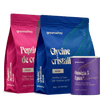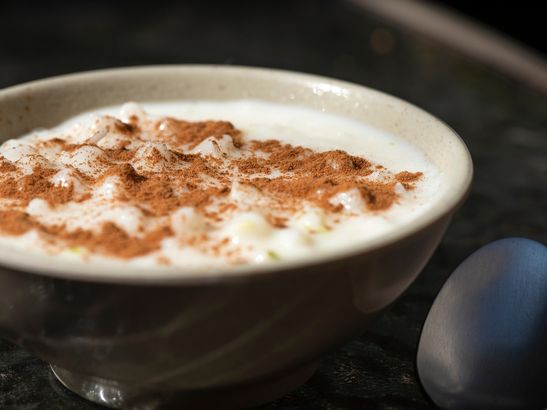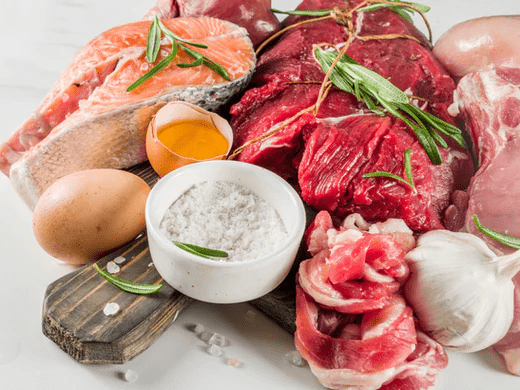Voilà un sujet plutôt controversé...
En effet, de nombreuses études laissent à penser que l'ingestion de caféine pourrait atténuer les effets ergogéniques de la créatine.
Aussi, bien que le mécanisme exact soit encore mal connu, ces études indiquent que la supplémentation simultanée en créatine et en caféine diminue de manière significative les avantages potentiels de la créatine (probablement dû aux effets opposés de la caféine et de la créatine sur le temps de relaxation musculaire ou leurs effets sur le tractus gastro-intestinal lorsqu'ils sont consommés simultanément).
Par conséquent, pour optimiser les effets ergogéniques de la créatine monohydrate, certains coachs conseillent aux athlètes d’éviter d'utiliser de la caféine pendant la supplémentation en créatine.
Pourtant, des études récentes dont celle de Moore et al. (2017) semblent démontrer que l’administration de caféine n’altère pas la signalisation mTOR* induite par l’effet de charge musculaire squelettique, la synthèse protéique ou l’hypertrophie musculaire, et in fine conserve le potentiel ergogénique de la créatine.
*pour mechanistic target of rapamycin, une enzyme kinase qui régule certaines voies de signalisation et joue un rôle dans la prolifération et la croissance cellulaire, la synthèse de protéines et certains facteurs de croissance.
Jerônimo et al. (2017) ont observé dans leur dernière expérience sur 16 sujets physiquement actifs âgés de 18 à 30 ans qui devaient effectuer 45 répétitions d’extension et de flexion du genou avec une vitesse angulaire constante de 120º sec-1. Immédiatement après le test, les mêmes sujets ont commencé la phase de supplémentation pendant 3 jours qui avec 6 mg/kg de caféine (Caf) suivie d’une période de « désintoxication » de 5 jours. Au terme de ces 5 jours, les sujets ont repris la supplémentation avec 3 g de créatine (Cr) durant 7 jours consécutifs puis, à la fin du 7ᵉ jour, les sujets ont continué à se supplémenter avec 3 g de créatine et 6 mg/kg de caféine (CrCaf) pendant 3 jours.

Dans une autre étude -Eur J Appl Physiol. 2011 Jan 5-, les chercheurs ont donné 300 mg de créatine par kg de poids corporel pendant 5 jours à 12 étudiants physiquement actifs (soit 24g par jour pour un étudiant pesant 80 kg). Les doses de créatine données aux élèves ont été divisées en 4 prises durant la journée. Au cours du sixième jour, les étudiants ont pris 6 mg de caféine par kg de poids corporel (soit 480mg pour un étudiant de 80kg), 60 minutes avant de faire un sprint.

Les chercheurs ont répété la procédure avec des placebos. La figure ci-contre montre la quantité d’énergie que les athlètes ont générée en sprintant aussi fort qu’ils le pouvaient sur le vélo. Entre les épisodes de sprint, les sujets à vélo roulaient pendant 60 secondes à une vitesse modérée.
Lorsque les athlètes ont pris de la caféine et de la créatine, leur rythme cardiaque était légèrement plus élevé et leur sang contenait un peu plus d’acide lactique et de glucose.
En conclusion « La caféine pourrait ne pas atténuer les avantages ergogènes de la créatine, si l’ingestion de caféine a eu lieu après la phase de chargement de la créatine. Les résultats concrets de cette étude nous inciteraient à prendre de la caféine avant un exercice intense si les athlètes veulent augmenter les effets ergogènes de la créatine. »
Bon, mais du coup, on fait quoi ?

En l’absence de consensus clair sur le sujet et étant donné l’innocuité de ces deux compléments, libre à vous de tester les effets synergiques ou non de ces molécules sur vos propres performances. En outre, la plupart des études ont été conduites avec une prise de caféine et de créatine simultanément. Il n’est pas impossible qu’une prise en différé, par exemple, une prise de caféine avant l’entrainement et une prise de créatine après l’entrainement, puisse aboutir à des résultats différents.
Attention toutefois à ne pas dépasser les doses recommandées, soit 3-6 mg de caféine par kg et 3-5 g de créatine par jour.
Références
Burke, L.M. (2008). Caffeine and sports performance. Appl. Physiol. Nutr. Metab. 33:1319–1334.
Burke, L., B. Desbrow, and L. Spriet (2013). Caffeine for sports performance. Human Kinetics, Champaign, Illinois, USA.
Chia, J.S., L.A. Barrett, J.Y. Chow, and S.F. Burns (2017). Effects of caffeine supplementation on performance in ball games. Sports Med. 47:2453-2471.
Clarke, N.D., N.A. Kirwan, and D.L. Richardson (2019). Coffee ingestion improves 5 km cycling performance in men and women by a similar magnitude. Nutrients 25:11.
Costill, D.L, G. Dalasky, and W. Fink (1978). Effects of caffeine ingestion on metabolism and exercise performance. Med. Sci. Sports 10:155-158.
Cox, G.R., B. Desbrow, P.G. Montgomery, M.E. Anderson, C.R. Bruce, T.A. Macrides, D.T. Martin, A. Moquin, A. Roberts, J.A. Hawley, and L.M. Burke (2002). Effect of different protocols of caffeine intake on metabolism and endurance performance. J. Appl. Physiol. 93:990–999.
Cureton, K.J., G.L. Warren, M.L. Millard-Stafford, J.E. Wingo, J. Trilk, and M. Buyckx (2007). Caffeinated sports drink: ergogenic effects and possible mechanisms. Int. J. Sport Nutr. Exerc. Metab. 17:35–55.
Davis, J.M., Z. Zhao, and H.S. Stock (2003). Central nervous system effects of caffeine and adenosine on fatigue. Am. J. Physiol. 284:R399–R404.
De Pauw, K., B. Roelands, and K. Knaepen (2015). Effects of caffeine and maltodextrin mouth rinsing on P300, brain imaging, and cognitive performance. J. Appl. Physiol. 118:776–782.
De Pauw, K., B. Roelands, J. Van Cutsem, U. Marusic, T. Torbeyns, and R. Meeusen (2017a). Electro-physiological changes in the brain induced by caffeine or glucose nasal spray. Psychopharm. 234:53–62.
De Pauw, K., B. Roelands, J. Van Cutsem, L. Decroix, A Valente, K. Taehee, R.B. Lettan, A.E. Carrillo, and R. Meeusen (2017b). Do glucose and caffeine nasal sprays influence exercise or cognitive performance? Int. J. Sports Physiol. Perform. 12:1186-1191.
Desbrow, B., C. Biddulph, B. Devlin, G.D. Grant, S.D. Anoopkumar-Dukie, and M.D. Leveritt (2012). The effects of different doses of caffeine on endurance cycling time trial performance. J. Sports Sci. 30:115-120.
Doering, T.M., J.W. Fell, M.D. Leveritt, B. Desbrow, and C.M. Shing (2014). The effect of a caffeinated
mouth-rinse on endurance cycling time-trial performance. Int. J. Sport Nutr. Exerc. Metab. 24:90–97.
Fredholm, B.B. (1995). Adenosine, adenosine receptors and the actions of caffeine. Pharmacol. Toxicol. 76:93–101.
Gallo-Salazar, C., F. Areces, J. Abian-Vicen, B. Lara, C. Gonzalez-Millan, J. Portillo, V. Munoz, D. Juarez, and J. Del Coso (2015). Enhancing physical performance in elite junior tennis players with a caffeinated energy drink. Int. J. Sports Physiol. Perform. 10:305-310.
Graham, T.E., and L.L. Spriet (1991). Performance and metabolic responses to a high caffeine dose during prolonged exercise. J. Appl. Physiol. 71:2292–2298.
Graham, T.E., and L.L. Spriet (1995). Metabolic, catecholamine and exercise performance responses to varying doses of caffeine. J. Appl. Physiol. 78:767-774.
Grgic, J., F. Sabol, S. Venier, I. Mikulic, N. Bratkovoc, B.J. Schoenfeld, C. Pickering, D.J. Bishop, Z. Pedisic, and P. Mikulic (2020a). What dose of caffeine to use: Acute effects of 3 doses of caffeine on muscle endurance and strength. Int. J. Sports Physiol. Perform. 15:470-477.
Grgic, J., C. Pickering, D.J. Bishop, J. Del Coso, B.J. Schoenfeld, G.M. Tinsley, and Z. Pedisic (2020b). ADOR2A C allele carriers exhibit ergogenic responses to caffeine supplementation. Nutrients 11:12.
Guest, N., P. Corey, J. Vescovi, and A. El-Sohemi (2018). Caffeine, CYP1A2 genotype, and endurance performance in athletes. Med. Sci. Sport Exerc. 50:1570–1578.
Hodgson, A.B., R.K. Randell, and A.E. Jeukendrup (2013). The metabolic and performance effects of caffeine compared to coffee during endurance exercise. PLoS One 8:e59561.
Ivy, J.L., D.L. Costill, W.J. Fink, and R.W. Lower (1979). Influence of caffeine and carbohydrate feedings on endurance performance. Med. Sci. Sports 11:6-11.
Kalmar, J.M., and E. Cafarelli (2004). Caffeine: a valuable tool to study central fatigue in humans. Exerc. Sports Sci, Rev. 32:143– 147.
Kamimori, G.H., C.S. Karyekar, R. Otterstetter, D.S. Cox, T.J. Balkin, G.L. Belenky, and E.D. Eddington. (2002). The rate of absorption and relative bioavailability of caffeine administered in chewing gum versus capsules to normal healthy volunteers. Int. J. Pharm. 234:159–167.
Kizzi J., A. Sum, F.E. Houston, and L.D. Hayes (2016). Influence of a caffeine mouth rinse on sprint cycling following glycogen depletion. Eur. J. Sport Sci. 16:1087–1094.
Lane, S.C., J.A. Hawley, B. Desbrow, A.M. Jones, J.R. Blackwell, M.L. Ross, A.J. Zemski, and L.M. Burke (2014). Single and combined effects of beetroot juice and caffeine supplementation on cycling time trial performance. Appl. Physiol. Nutr, Metab. 39:1050-1057.
Lara, B., D. Ruiz-Vicente, F. Areces, J. Abian-Vicen, J.J. Salinero, C. Gonzalez-Millan, C. Gallo-Salazar, and J. Del Coso (2015). Acute consumption of a caffeinated energy drink enhances aspects of performance in sprint swimmers. Br. J. Nutr. 114:908-914.
Loy, B.D. P.J. O’Connor, J.B. Lindheimer, and S.F. Covert (2015). Caffeine is ergogenic for adenosine A2A receptor gene (ADORA2A) T allele homozygotes: A pilot study. J. Caff. Res. 5:73–81.
Madden, R.F., K.A. Erdman, J. Shearer, L.L. Spriet, R. Ferber, A.T. Kolstad, J.L. Bigg, A.S.D. Gamble, and L.C. Benson (2019). Effects of low dose caffeine supplementation on measures of exertion, skill performance and physicality in ice hockey. Int. J. Sports Physiol. Perform. 14:1422-1429.
Meyers, B.M., and E. Cafarelli (2005) Caffeine increases time to fatigue by maintaining force and not by altering firing rates during submaximal isometric contractions. J. Appl. Physiol. 99:1056-1063.
Pak, I.E, M. Cug, S.L. Volpe, and C.M. Beaven (2020). The effect of carbohydrate and caffeine mouth rinse on kicking performance in competitive Taekwondo athletes during Ramadan. J. Sports Sci. 38:795-780.
Pasman, W.J., M.A. VanBaak, A.E. Jeukendrup, and A. DeHaan (1995). The effect of different dosages of caffeine on endurance performance time. Int. J. Sports Med. 16:225–230.
Paton, C.D., T. Lowe, and A. Irvine (2010). Caffeinated chewing gum increases repeated sprint performance and augments increases in testosterone in competitive cyclists. Eur. J. Appl. Physiol. 110:1243-1250.
Pitchford, N.W., J.W. Fell, M.D. Leveritt, B. Desbrow, and C.M. Shing (2014). Effect of caffeine on cycling time-trial performance in the heat. J. Sci. Med. Sport. 17:445-449.
Pickering, C., and J. Grgic (2019). Caffeine and exercise: What next? Sports Med. 49:1007-1030.
Rivers, W.H., and H.N. Webber (1907). The action of caffeine on the capacity for muscular work. J. Physiol. 36:33-47.
Jerônimo, Diego Pereira, et al. Caffeine Potentiates the Ergogenic Effects of Creatine, (2017)
Mitani, et al. Caffeine-Stimulated Intestinal Epithelial Cells Suppress Lipid Accumulation in Adipocytes, J Nutr Sci Vitaminol 63(5) (Tokyo | 2017):331-338
Moore, Timothy M., et al. The effect of caffeine on skeletal muscle anabolic signaling and hypertrophy, Applied Physiology, Nutrition, and Metabolism 999 (2017): 1-9.
Vandenberghe, K., et al. Caffeine counteracts the ergogenic action of muscle creatine loading, Journal of applied physiology (1996).


